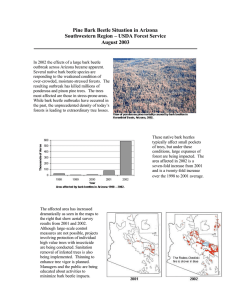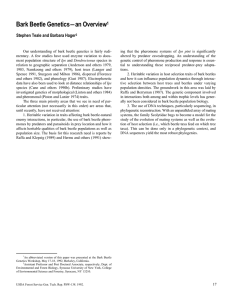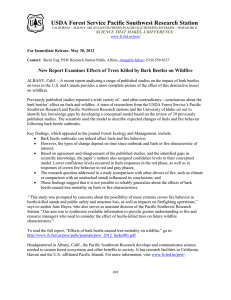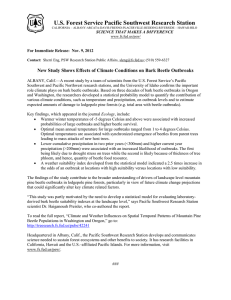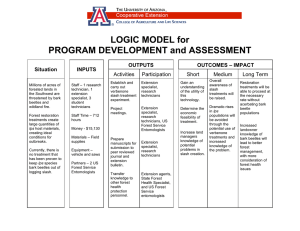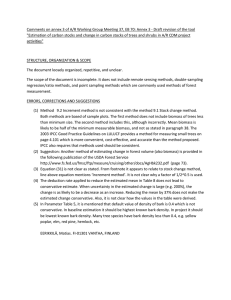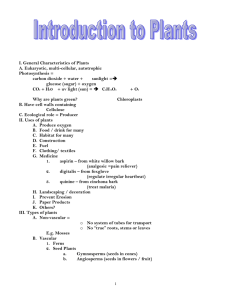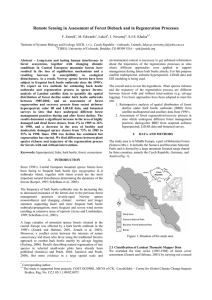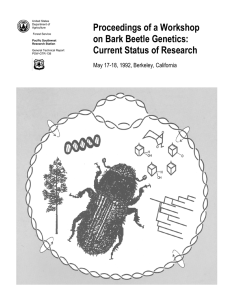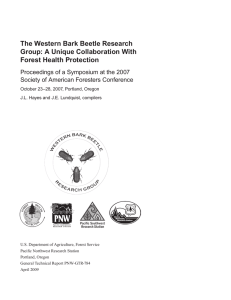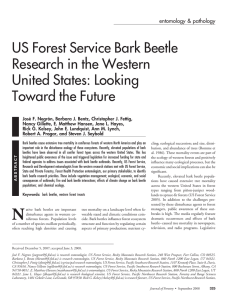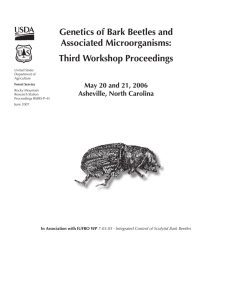USDA Forest Service Pacific Southwest Research Station
advertisement
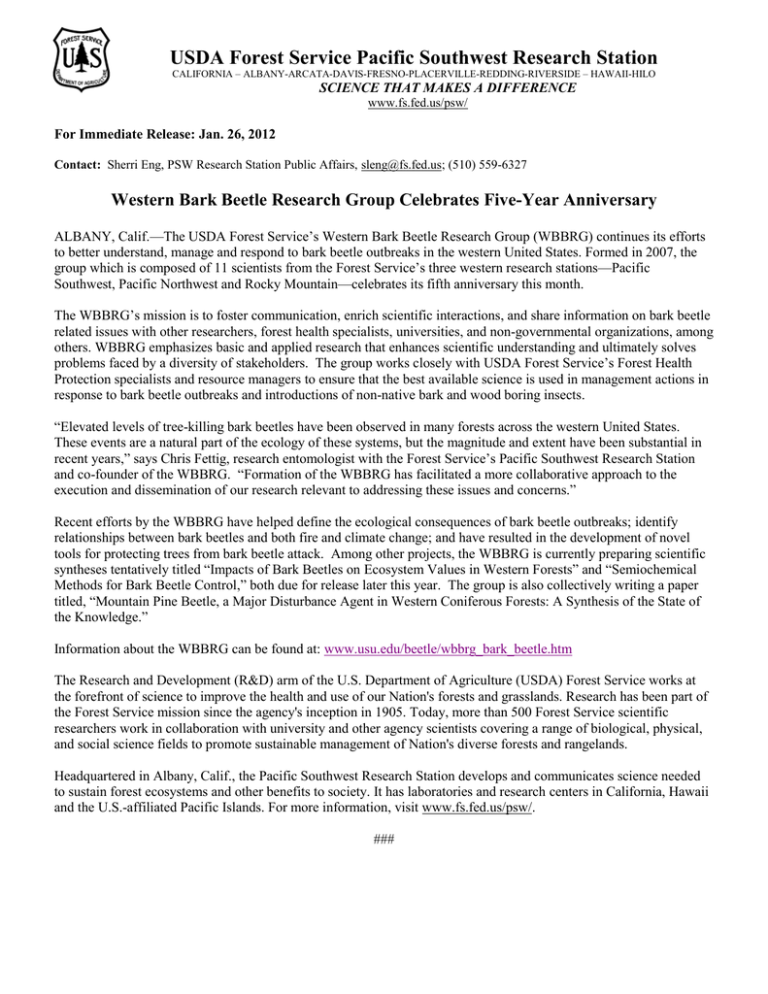
USDA Forest Service Pacific Southwest Research Station CALIFORNIA – ALBANY-ARCATA-DAVIS-FRESNO-PLACERVILLE-REDDING-RIVERSIDE – HAWAII-HILO SCIENCE THAT MAKES A DIFFERENCE www.fs.fed.us/psw/ For Immediate Release: Jan. 26, 2012 Contact: Sherri Eng, PSW Research Station Public Affairs, sleng@fs.fed.us; (510) 559-6327 Western Bark Beetle Research Group Celebrates Five-Year Anniversary ALBANY, Calif.—The USDA Forest Service’s Western Bark Beetle Research Group (WBBRG) continues its efforts to better understand, manage and respond to bark beetle outbreaks in the western United States. Formed in 2007, the group which is composed of 11 scientists from the Forest Service’s three western research stations—Pacific Southwest, Pacific Northwest and Rocky Mountain—celebrates its fifth anniversary this month. The WBBRG’s mission is to foster communication, enrich scientific interactions, and share information on bark beetle related issues with other researchers, forest health specialists, universities, and non-governmental organizations, among others. WBBRG emphasizes basic and applied research that enhances scientific understanding and ultimately solves problems faced by a diversity of stakeholders. The group works closely with USDA Forest Service’s Forest Health Protection specialists and resource managers to ensure that the best available science is used in management actions in response to bark beetle outbreaks and introductions of non-native bark and wood boring insects. ―Elevated levels of tree-killing bark beetles have been observed in many forests across the western United States. These events are a natural part of the ecology of these systems, but the magnitude and extent have been substantial in recent years,‖ says Chris Fettig, research entomologist with the Forest Service’s Pacific Southwest Research Station and co-founder of the WBBRG. ―Formation of the WBBRG has facilitated a more collaborative approach to the execution and dissemination of our research relevant to addressing these issues and concerns.‖ Recent efforts by the WBBRG have helped define the ecological consequences of bark beetle outbreaks; identify relationships between bark beetles and both fire and climate change; and have resulted in the development of novel tools for protecting trees from bark beetle attack. Among other projects, the WBBRG is currently preparing scientific syntheses tentatively titled ―Impacts of Bark Beetles on Ecosystem Values in Western Forests‖ and ―Semiochemical Methods for Bark Beetle Control,‖ both due for release later this year. The group is also collectively writing a paper titled, ―Mountain Pine Beetle, a Major Disturbance Agent in Western Coniferous Forests: A Synthesis of the State of the Knowledge.‖ Information about the WBBRG can be found at: www.usu.edu/beetle/wbbrg_bark_beetle.htm The Research and Development (R&D) arm of the U.S. Department of Agriculture (USDA) Forest Service works at the forefront of science to improve the health and use of our Nation's forests and grasslands. Research has been part of the Forest Service mission since the agency's inception in 1905. Today, more than 500 Forest Service scientific researchers work in collaboration with university and other agency scientists covering a range of biological, physical, and social science fields to promote sustainable management of Nation's diverse forests and rangelands. Headquartered in Albany, Calif., the Pacific Southwest Research Station develops and communicates science needed to sustain forest ecosystems and other benefits to society. It has laboratories and research centers in California, Hawaii and the U.S.-affiliated Pacific Islands. For more information, visit www.fs.fed.us/psw/. ###
